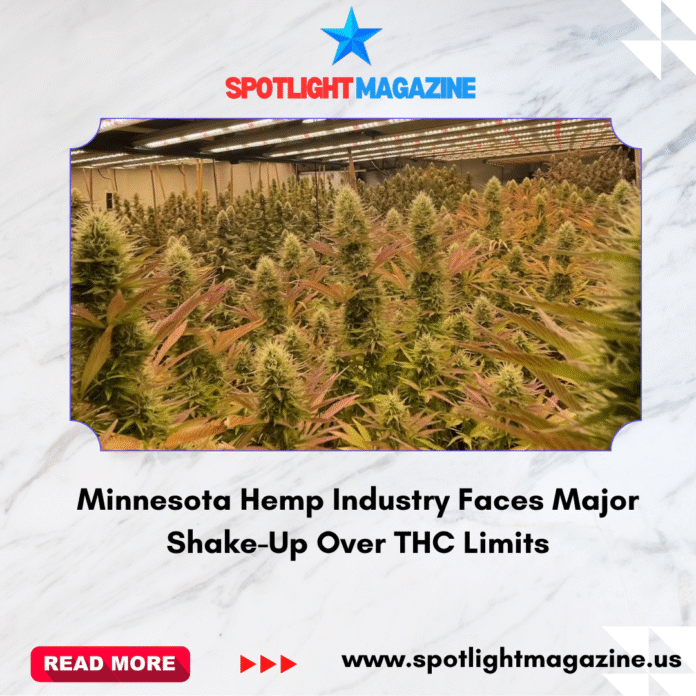Minnesota Attorney General Keith Ellison, along with other state attorneys general, recently urged Congress to take action on unregulated hemp products. They want lawmakers to close a loophole in the 2018 Farm Bill that allows hemp-derived THC products to be sold with little oversight. The attorneys general are concerned about the lack of consistent age restrictions and the rising number of accidental exposures among children.
A provision in a federal funding bill passed by the Senate on Monday would significantly change how hemp is defined. Under the new rules, THC levels in hemp products could be limited to as little as 0.4 milligrams per container. For comparison, hemp-derived products currently available in Minnesota can contain up to 5 milligrams of THC per serving and 50 milligrams per package.
This change has sparked strong opposition from hemp industry advocates. Senator Rand Paul, one of the few Republicans to vote against the funding bill, has criticized the hemp restrictions. He argued that the changes would hurt hemp farmers and small businesses, particularly in his home state of Kentucky, and called for an amendment to remove the provision.
Local businesses that produce hemp-derived THC products are also speaking out. Ryan Bandy of Indeed Brewing, which makes THC beverages, described the impact as devastating. He compared the new 0.4 milligram limit to a non-alcoholic beer, explaining that such products would no longer deliver the effects consumers expect. Bandy said the change could force companies to rethink their entire business models, similar to the disruptions experienced during the COVID-19 pandemic. He emphasized that the industry has become a significant part of the market, with nearly a billion dollars in nationwide sales and tens of millions in revenue in Minnesota alone.
Industry leaders warn that if the new federal limit goes into effect, THC products could disappear from retail shelves, including liquor stores. Bandy pointed out that the appeal of hemp beverages lies in their effects and flavor, not as watered-down alternatives. Reducing THC levels to 0.4 milligrams, he said, would make them essentially unappealing, likening it to drinking a plain soda instead of a THC-infused beverage.
Critics of the proposed changes argue that the new rules could dismantle a growing industry that provides jobs, tax revenue, and business opportunities across the state. Supporters, however, maintain that stricter regulation is needed to protect children and ensure safer consumption. The debate highlights the ongoing tension between regulation and the economic growth of the hemp sector.
As the discussion continues in Congress, the outcome will have major implications for Minnesota’s hemp industry, which is currently valued at $200 million annually. Lawmakers face a challenging decision: balancing public safety concerns with the economic interests of farmers, small businesses, and the growing market of hemp-derived THC products.


